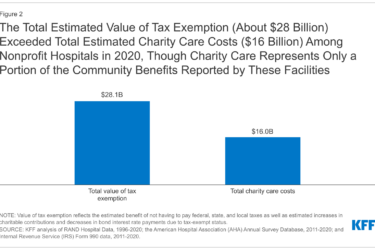As I try to figure out what AHCJ members most need as they cover Health Policy in year two of the Affordable Care Act, I tried to see if I could detect themes at the AHCJ conference in Philadelphia. That unified theory of health reporting plan went out the door as I heard questions ranging from very basic queries about pre-existing conditions to far more technical inquiries about accountable care organizations.
My next plan was to blog about the “reporting on Health Policy” session. A conference fellow beat me to that – (also see the tip sheets Covering Health Policy issues, Health care reform: Litigation update, Three Health Policy issues to watch in the states).
What questions do you have about Health Policy and how to cover it?
 Joanne Kenen is AHCJ’s health reform topic leader. She is writing blog posts, tip sheets, articles and gathering resources to help our members cover the complex implementation of Health Policy. If you have questions or suggestions for future resources on the topic, please send them to joanne@healthjournalism.org.
Joanne Kenen is AHCJ’s health reform topic leader. She is writing blog posts, tip sheets, articles and gathering resources to help our members cover the complex implementation of Health Policy. If you have questions or suggestions for future resources on the topic, please send them to joanne@healthjournalism.org.
The repeal and replace stage of the health wars isn’t over. But I think we are entering another phase. The dominant national discussion topic is the deficit and the debt – and that leads into Medicare, Medicaid and other entitlements. I’ve done a tip sheet on Medicare and “premium support.” Medicaid is next up.
The proposals in the House-passed version of the budget are not brand new; Medicaid block-grant proposals have been around since at least the Reagan years, and they were definitely part of the Gingrich era. I remember hearing about variants of premium support and/or Medicare vouchers in the late 1990s, and I suspect they were around before that.
We don’t know every detail of what the Ryan plan would do; the budget plan is a federal framework, and the details aren’t filled in. And of course the Ryan budget won’t be accepted by the Democratic-controlled Senate or President Obama. But this idea isn’t going to go away. We need to watch how it plays into reforms being considered at the state level, and see what kind of steam it picks up (or loses) after 2012.
If your governor or state legislature favors block granting Medicaid, it’s time to start asking questions.
- What would Medicaid look like under a block grant?
- Who would still get it?
- Would there be enrollment caps and waiting lists?
- How much of the costs would be shifted to the beneficiaries and families?
- Would providers get paid less?
States can already get waivers for Medicaid, and that can allow for innovation in red and blue states alike. States will have a lot more flexibility under some of the ACA provisions in the next few years, including ways of doing a better job caring for people with chronic disease and the “dual eligibles” on Medicaid and Medicare.
Here are a few articles I’ve seen recently that describe some of what the states are already doing – or considering – as they confront rising Medicaid costs today.
Looking at the coverage
Carol M. Ostrom of The Seattle Times had an April 17 piece: “Doctors: State plan to limit Medicaid ER trips risks lives.”
Several of the Florida papers have had pretty good coverage of Gov. Rick Scott’s plans to transform Medicaid. But a solid hour of Googling didn’t net me one good big clear step-back story (it may be out there somewhere … send it if you see it) that tells out-of-state readers the whole story. But I still found work by John Kennedy and Stacey Singer at The Palm Beach Post (here’s one) and Marc Caputo of The Miami Herald (click here – you have to read down a bit to get the state overview) helpful.
The Oregonian has been taking a look at some of Gov. John Kitzhaber’s agenda, which should be worth watching as he has a track record as an innovator (and knows CMS administrator Don Berwick quite well). And of course we’ve all heard a lot about Arizona.
A lot of the stories I looked at from around the states were written by state capitol reporters, not health beat folks, so they were heavy on process and “Republican said X, Democrat said Y” kind of coverage. They didn’t always do a great job of getting beyond a fusillade of quotes. I guess if I’ve been Googling for more than an hour and can’t find a really solid health overview story, I should stop here and invite you to send me any you’ve seen (or written).
Don’t forget about Medicaid
Medicare is getting an awful lot of ink – after all, old people vote, and most of us expect to get old someday and need Medicare. We’ve got to look harder at Medicaid which covers poor kids and their parents, some of the disabled and mentally ill, some of the HIV population, and lots of the residents of nursing homes. That isn’t who votes. That isn’t who decides what reporters cover. And it’s certainly not a benefit most of us hope to use someday.
Last comment for today – and you’ll probably hear me return to this theme frequently because, to me, it’s some of the most interesting reporting we’ll be able to do in the coming years: Remember the Affordable Care Act, the Health Policy law, isn’t only about coverage and insurance exchanges. It makes countless changes to Medicare and Medicaid – changes that will affect the current fee for service model, changes that affect the private managed care sections of it and changes that will add new dimensions as we explore new ways of delivering care (medical homes, ACOs, a number of Medicaid programs aimed at getting people care in the community, not just nursing homes).
Joanne Kenen is AHCJ’s health reform topic leader. She is writing blog posts, tip sheets, articles and gathering resources to help our members cover the complex implementation of Health Policy. If you have questions or suggestions for future resources on the topic, please send them to joanne@healthjournalism.org.









